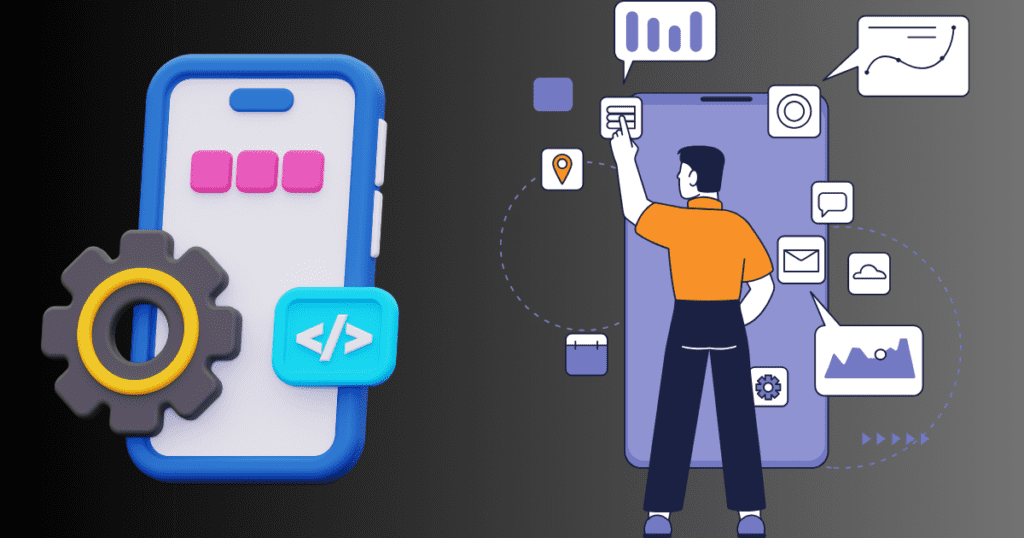The Information Technology (IT) field is a vast and dynamic industry that continues to shape the modern world. With technology evolving at an unprecedented pace, the demand for skilled IT professionals is soaring. In this article, we’ll explore 15 exciting career options in IT field, each offering unique opportunities for growth and innovation.
Table of Contents
ToggleWhy Choose the IT Field? Career Options in IT
Exploring the Allure of IT Careers
There are a bunch of career options in IT sector, but what makes it an attractive choice? Let’s delve into the compelling reasons individuals choose the IT sector as the foundation for their professional journey.
Endless Innovation and Creativity
In the IT field, innovation is not just encouraged; it’s a way of life. Professionals have the opportunity to work on cutting-edge technologies, explore new solutions, and contribute to the evolution of digital landscapes. The constant need for creative problem-solving makes IT a dynamic and intellectually stimulating field.
Global Impact of IT Solutions
IT professionals have the power to create solutions that transcend geographical boundaries. Whether it’s developing software that facilitates global communication or designing cybersecurity measures to protect sensitive information worldwide, the impact of IT reaches far and wide, making it a field with a global footprint.
Diverse Career Paths
From software development to network administration, there are diverse career options in IT. Whether you’re inclined towards coding, cybersecurity, data science, or project management, the IT field accommodates a broad spectrum of interests. This versatility allows individuals to tailor their careers to match their passions and strengths.
Continuous Learning and Skill Enhancement
In IT, the learning never stops. With technologies evolving rapidly, professionals are continually updating their skills to stay relevant. The field thrives on curiosity and a thirst for knowledge, creating an environment where individuals can expand their expertise and remain at the forefront of industry trends.
Competitive Compensation and Job Security
As the demand for IT professionals continues to rise, so does the compensation. Career options in IT often come with competitive salaries and benefits, reflecting the value placed on the skills and expertise of professionals in the field. Additionally, the ever-growing reliance on technology ensures job security in the IT sector.
Contribution to Digital Transformation
IT professionals are at the forefront of digital transformation, shaping the way businesses operate and individuals interact. Whether it’s developing user-friendly applications, implementing cloud solutions, or enhancing cybersecurity measures, IT plays a pivotal role in driving the digital evolution of various industries.
Opportunities for Entrepreneurship
The IT field provides a fertile ground for entrepreneurship. Individuals with innovative ideas can create startups, develop unique solutions, and contribute to the entrepreneurial ecosystem. The ability to transform ideas into tangible products or services is a driving force for many aspiring IT professionals.
In the next sections, we will delve into specific career options in IT, each offering its own set of challenges and rewards. The IT field’s allure lies not only in its technological intricacies but also in the endless possibilities it presents for personal and professional growth.
Let’s explore career options in the IT field starting with Software Developer.
Software Developer – Crafting the Digital Future

In the ever-evolving landscape of IT, software development stands out as a pillar of innovation. Software developers are the architects of the digital future, responsible for creating applications and systems that power our daily lives. This section delves into the intricacies of software development, from the overview of the profession to the specific programming languages and tools that define success in this field.
Overview of Software Development
Software developers are the masterminds behind the applications we use on our devices. They design, code, test, and maintain software that meets the needs of users and organizations. The journey of a software developer involves understanding user requirements, translating them into code, and continuously improving and updating software to adapt to changing needs.
Programming Languages and Tools
The choice of programming language and tools is crucial for a software developer. Python is renowned for its simplicity and versatility, making it a popular choice for a wide range of applications. Tools like GitHub facilitate collaborative and efficient coding, allowing developers to work seamlessly on projects. The landscape of software development is diverse, offering various career paths depending on specialization and expertise.
Network Administrator – Guardians of Connectivity
In the vast realm of IT infrastructure, network administrators play a pivotal role in ensuring seamless communication and connectivity. This section explores the responsibilities of network administrators, the skills required, and the potential career progression within this critical domain.
Role in IT Infrastructure
Network administrators are responsible for the day-to-day operation and maintenance of an organization’s computer networks. They ensure that data can flow efficiently between devices, enabling smooth communication within the organization. This role is essential for the functioning of businesses, as a well-maintained network is the backbone of modern operations.
Skills Required
To thrive as a network administrator, one must possess a blend of technical and interpersonal skills. Proficiency in networking protocols such as TCP/IP, knowledge of network hardware, and troubleshooting abilities are crucial. Certifications like CCNA (Cisco Certified Network Associate) can significantly enhance career prospects by validating the expertise required in this field.
Cybersecurity Analyst – Safeguarding the Digital Realm
With the ever-increasing threats in the digital landscape, the role of a cybersecurity analyst has become paramount. This section delves into the importance of cybersecurity, the essential skills and certifications, and the diverse career paths available in this challenging yet rewarding field.
Importance of Cybersecurity in IT
In an era where cyber threats are prevalent, cybersecurity analysts stand as the frontline defenders of digital assets. They protect organizations from malicious attacks, securing sensitive data and ensuring the integrity of digital systems. The importance of cybersecurity has grown exponentially as businesses and individuals rely more on digital platforms.
Skills and Certifications
Succeeding in cybersecurity requires a combination of technical skills and a deep understanding of security protocols. Cybersecurity analysts need to stay ahead of the curve by continuously updating their skills and knowledge. Certifications like CEH (Certified Ethical Hacker) are highly valued in the industry, showcasing a commitment to ethical and effective cybersecurity practices.
Data Scientist – Harnessing Insights from Data
In the data-driven era, data scientists play a pivotal role in extracting meaningful insights from vast datasets. This section dives into the responsibilities of data scientists, the tools and technologies they employ, and the expansive career opportunities available in the realm of data science.
Role in Extracting Insights from Data
Data scientists are akin to modern-day alchemists, turning raw data into gold by deciphering patterns, trends, and valuable insights. Their role involves not just analyzing historical data but predicting future trends, enabling organizations to make informed decisions. From healthcare to finance, data scientists are instrumental across various industries.
Tools and Technologies in Data Science
The toolkit of a data scientist is vast and ever-expanding. Proficiency in programming languages like R and SQL is foundational, but the use of advanced tools such as Tableau for data visualization and machine learning frameworks like TensorFlow for predictive modeling takes their capabilities to the next level. Embracing these tools allows data scientists to navigate the complex terrain of data analytics and machine learning.
Cloud Architect – Designing the Digital Skyline
With the paradigm shift towards cloud computing, cloud architects have emerged as key players in the IT landscape. This section provides an overview of cloud architecture, the skills required, and the continuous evolution within the field.
Overview of Cloud Computing
Cloud computing has revolutionized the way businesses manage and process data. Cloud architects design and oversee the implementation of cloud infrastructure, allowing organizations to scale resources dynamically, enhance security, and reduce operational costs. This shift from traditional on-premise solutions to cloud-based services has made cloud architects indispensable in the IT ecosystem.
Skills Required for Cloud Architecture
Mastery of cloud platforms such as AWS (Amazon Web Services) and Azure is fundamental for cloud architects. Additionally, a deep understanding of virtualization technologies, containerization, and security measures is crucial. Cloud architects need to stay abreast of technological advancements and industry trends to design robust and scalable cloud solutions.
IT Project Manager – Orchestrating Success
Guiding IT projects from inception to completion, IT project managers are the conductors ensuring harmony within the orchestra of technological initiatives. This section explores the multifaceted role of IT project managers, emphasizing the importance of leadership, communication, and effective project management.
Managing IT Projects
The complexity of IT projects requires astute management to ensure they are completed on time, within budget, and meet the predefined objectives. IT project managers coordinate various stakeholders, allocate resources, and navigate unforeseen challenges to deliver successful outcomes. Their role is akin to steering a ship through ever-changing waters.
Leadership and Communication Skills
Effective communication is the backbone of successful project management. IT project managers must convey complex technical information in a way that is understandable to diverse audiences, from developers to C-level executives. Leadership skills are equally vital, guiding teams through challenges and fostering a collaborative and innovative work environment.
Database Administrator – Guardians of Digital Repositories
At the core of data management, database administrators (DBAs) ensure the smooth functioning of databases that power applications and systems. This section explores the pivotal role of DBAs, the diverse database technologies involved, and the evolving career paths within database administration.
Role in Managing Databases
Database administrators are responsible for the design, implementation, and maintenance of databases. They optimize database performance, ensure data integrity, and implement security measures. The efficiency of applications relies heavily on the seamless operation of databases, making DBAs essential custodians of digital repositories.
Database Technologies
As technology evolves, so do databases. DBAs must stay updated on emerging technologies, including the rise of NoSQL databases. Whether it’s managing traditional relational databases like MySQL and Oracle or exploring newer models, database administrators shape the foundation of data storage and retrieval.
UI/UX Designer – Crafting Digital Experiences
In an era where user experience (UX) is paramount, UI/UX designers emerge as artists shaping the way we interact with digital interfaces. This section delves into the significance of UI/UX design, the tools and skills essential for success, and the ongoing evolution of this creative field.
Importance of User Experience
User experience is not just about aesthetics; it’s about creating interfaces that are intuitive, accessible, and delightful. UI/UX designers focus on understanding user behavior, ensuring that digital interactions are seamless and enjoyable. Their work spans websites, mobile apps, and various digital platforms.
Design Tools and Skills
From wireframing to prototyping, UI/UX designers leverage tools like Sketch and Adobe XD to bring their visions to life. Mastery of design principles, an understanding of human psychology, and staying attuned to design trends are critical. UI/UX designers bridge the gap between technology and user satisfaction.
Business Intelligence Analyst – Transforming Data into Strategy
Business intelligence analysts play a crucial role in transforming raw data into actionable insights that drive strategic decision-making. This section explores the significance of BI, the tools and techniques employed, and the diverse career paths within business intelligence.
Utilizing Data for Business Decisions
In a world inundated with data, making sense of it is a strategic advantage. Business intelligence analysts help organizations harness the power of data for informed decision-making. They analyze trends, identify opportunities, and present insights that guide executives in shaping business strategies.
BI Tools and Techniques
Proficiency in BI tools like Power BI is central to the success of business intelligence analysts. These tools allow for data visualization, making complex information accessible and understandable. As organizations increasingly adopt data-driven approaches, business intelligence analysts become instrumental in driving innovation and efficiency.
IT Consultant – Navigating Business Challenges
For those who relish problem-solving, a career as an IT consultant offers a dynamic and challenging path. This section delves into the multifaceted world of IT consulting, highlighting the role, specializations, and the diverse challenges consultants tackle while providing expertise to businesses.
Providing Expertise to Businesses
IT consultants are hired to solve problems and enhance the efficiency of IT systems within organizations. From recommending technology solutions to assisting in strategic planning, consultants bring an external perspective to address unique challenges. Their expertise spans various domains, making them invaluable assets to businesses navigating the complexities of the digital landscape.
Specializations in IT Consulting
IT consulting is not a one-size-fits-all profession. Consultants often specialize in areas such as cybersecurity, software implementation, or IT strategy. This specialization allows them to tailor their advice to meet the specific needs of their clients, creating a customized approach to problem-solving.
DevOps Engineer – Bridging Development and Operations
In a world that values efficiency and collaboration, DevOps engineers play a pivotal role in streamlining development and operations processes. This section explores the integration of DevOps, the tools and practices involved, and the continuous evolution within this field.
Integration of Development and Operations
DevOps engineers break down the traditional silos between development and operations teams. They focus on collaboration and communication, ensuring a smooth transition from code development to deployment. By automating processes and fostering a culture of continuous integration, DevOps engineers contribute to faster and more reliable software delivery.
DevOps Tools and Practices

Mastery of tools like Jenkins for continuous integration and Docker for containerization is fundamental for DevOps engineers. The practices they employ, such as continuous delivery and continuous monitoring, are aimed at enhancing the efficiency of software development. As organizations embrace agility, the demand for DevOps expertise continues to grow.
Machine Learning Engineer – Crafting Intelligent Solutions
At the intersection of data science and artificial intelligence, machine learning engineers bring algorithms to life. This section explores the applications of machine learning, the skills needed, and the evolving landscape of this dynamic and rapidly progressing field.
Applications of Machine Learning
Machine learning is omnipresent, from recommendation systems in e-commerce to fraud detection in finance. Machine learning engineers design algorithms that allow systems to learn and improve without explicit programming. Their work is fundamental to the development of intelligent solutions in various industries.
Skills Needed for ML Engineering
Proficiency in languages like Python and frameworks like Scikit-Learn is essential for machine learning engineers. They delve into understanding complex algorithms, optimizing model performance, and staying updated on the latest advancements in machine learning. The ability to translate business problems into machine-learning solutions is a hallmark of a successful machine-learning engineer.
Mobile App Developer – Architects of Digital Experiences

In a world dominated by smartphones, mobile app developers shape our digital experiences. This section explores the realm of mobile app development, the programming languages involved, and the diverse career paths within this competitive field.
Creating Applications for Mobile Platforms
Mobile app developers are responsible for designing and building applications for mobile devices. Whether using Java for Android or Swift for iOS, developers need to understand the unique challenges of mobile platforms. Their creations range from social media apps to productivity tools, impacting how we interact with technology daily.
Programming Languages for Mobile Development
Mastery of mobile development languages and frameworks, including React Native and Flutter, is crucial for success. Mobile app developers must stay updated on the latest design trends and user preferences to create applications that resonate with a diverse audience.
IT Trainer – Empowering the Next Generation
For those passionate about sharing knowledge, a career as an IT trainer offers the opportunity to educate and empower the next generation of IT professionals. This section explores the role of IT trainers, the importance of continuous learning, and the impact they have on shaping future talent.
Educating and Training IT Professionals
IT trainers are instrumental in bridging the knowledge gap in the rapidly evolving IT landscape. They design and deliver training programs, equipping individuals with the skills needed for successful careers in IT. Their impact extends beyond imparting technical knowledge, as they inspire a love for learning and curiosity in their students.
Continuous Learning in IT
To stay effective, IT trainers must embrace continuous learning. This involves acquiring certifications, attending workshops, and staying updated on emerging technologies. Their ability to adapt to new trends ensures that they provide relevant and up-to-date training to their students.
Don’t Miss: Coding Internships: Unlocking Opportunities in the Tech World
Conclusion
In this expansive exploration of 15 career options within the IT field, we’ve journeyed through the diverse landscapes of software development, network administration, cybersecurity, data science, cloud architecture, IT project management, database administration, UI/UX design, business intelligence analysis, IT consulting, DevOps engineering, machine learning, mobile app development, and IT training. Each career path offers unique challenges and opportunities, contributing to the dynamic tapestry of the IT industry.
FAQs
- Which IT career has the highest demand currently?
- The demand for cybersecurity analysts is currently soaring, given the increasing importance of digital security.
- How can I transition to one of the career options in IT without a technical background?
- Pursuing certifications and online courses in areas like IT support or project management can provide a solid foundation for a career transition.
- Are there global certifications that are universally recognized in the IT industry?
- Certifications like CompTIA A+, Cisco CCNA, and PMP are globally recognized and highly valued in the IT industry.
- What programming languages are essential for career options in IT?
- Depending on the career path, languages like Python, Java, JavaScript, and SQL are widely used in various IT roles.
- Is a degree necessary for a successful IT career?
- While a degree can be beneficial, many IT professionals have successful careers based on certifications, experience, and practical skills.
This concludes our comprehensive exploration of the IT field and its diverse career options. If you have further questions or if there’s anything specific you’d like to delve deeper into, feel free to reach out!
